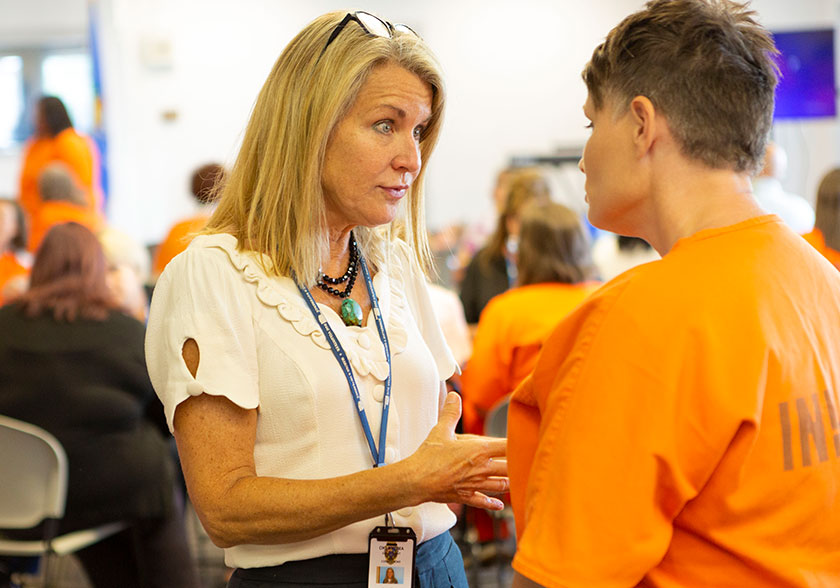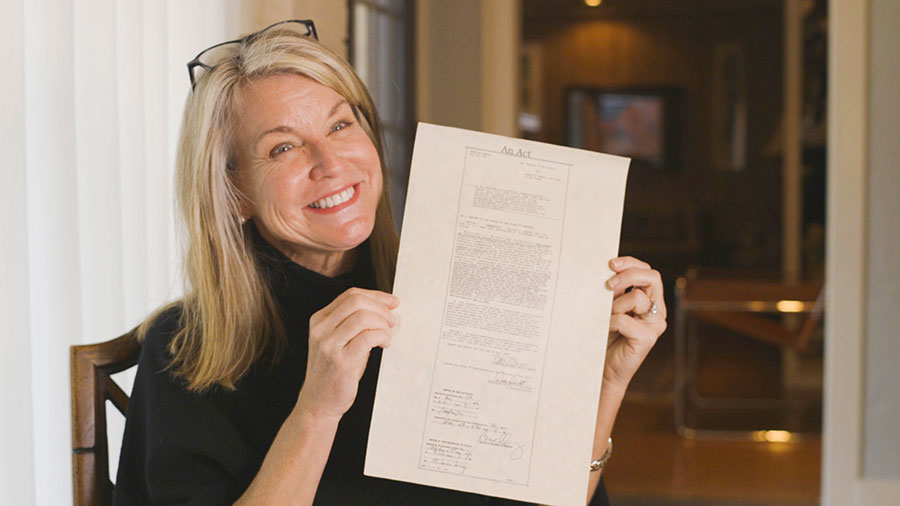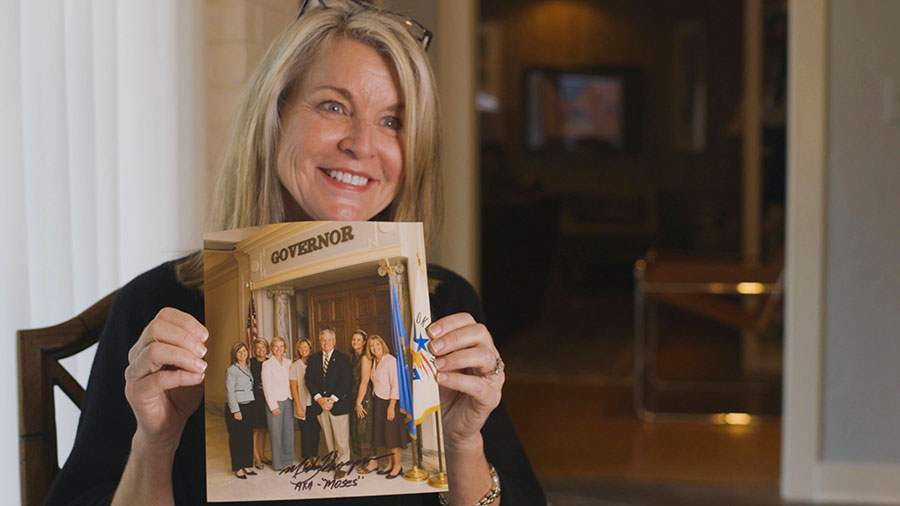PARTING THE LEGISLATIVE SEA FOR WOMEN IN PRISON
Susan Esco has one of those smiles that makes you want to find out what she's so happy about so you can be happy about it too.
What is she so happy about? For starters, ministering to women in prison. Susan has been volunteering in women’s prisons for years, most recently in the Prison Fellowship Academy® inside Oklahoma's Kate Barnard Correctional Center.
"As soon as I went in, I knew that I wanted to be a part of what was happening. To tell the women, 'There is hope when you feel hopeless.'"
And Susan knows what it's like to feel hopeless.
ONE WOMAN'S SECOND CHANCE
"When I was in my late teens, I was in a car accident, and I was driving," she recalls. The accident killed the teenage boy who was riding with her. "Had the laws been different at that time, I would have been in prison for a very long time."
Susan didn't do any time, but she was imprisoned by guilt. How could she ever move on? Then something unexpected happened.
"His parents came and offered me forgiveness and grace and said, 'Life is for the living.'
And the healing that came from the mercy they showed me was very unusual."
Forgiveness is what Susan is truly happy about—and it still makes her smile. She wants women in prison to be happy about it too.
"I feel like I have an opportunity to give that same hope to others that may not receive that grace from the victims or the victim's family. But … we do have hope, and there is redemption and restoration and joy in the morning."

FINDING FAMILY BEHIND BARS
Susan got involved in prison ministry when she was invited to be part of a Bible study inside a women’s facility. "The first time I went into prison, I—in a way—felt like I was home. I was with my family. The women on the inside who know Jesus are my family," she says. Then she adds:
"I felt like I was right in the center of what God had called me to do. I even said to my leader as we were leaving, 'Can we come back every day?'’ Because I just fell in love with these sweet, tenderhearted, precious women who are hungry. They're humble because they know that they need a savior. They know that they need direction. So they're very willing to learn, very teachable."
Once she was regularly volunteering inside prison, she saw a need for transitional homes that would help women ease back into society after they were released. Susan and a group got together to start one. "So we got started in that and were well on our way, when a law came to our attention that kept us from having a transition home really in the city limits," she says.
With the women being so far away, Susan and the group couldn't assist them with things like getting a job or finding transportation. "It was really crippling them from changing their lives and turning their lives around," Susan says.
So what did Susan and her friends do? They went to the state Capitol to try and get a law passed that would change the restriction.

PARTING THE LEGISLATIVE SEA
"As we took steps to make a difference in [transitional housing]," Susan remembers, "we realized the magnitude [of what we were up against in Oklahoma]—that we incarcerate twice the number of the national average per capita for women. … I just had a heart to see some things change."
Fortunately, state representatives and senators were willing to help. They showed Susan and her group how a bill becomes law and explained who they needed to talk to. Susan's group was able to pull together authors for a bill from both the Senate and the House. Susan says about the bill, "We babied it, babied it, and babied it, and [it] went through the Senate with full support."
But things didn't go so smoothly in the Oklahoma House. "It got to the House, and we thought we had full support, [but] … we only had three 'yes' votes," she says. "So virtually, it died on the House floor. But the Lord brought someone into the process that I now call 'Moses.'"
That "Moses" was Mick Thompson, a former floor leader in the Oklahoma House, whose wife has a heart for women's prison ministry. "And so when he came into the picture, he was able to convince the Democrats and the Republicans that this is a bipartisan issue and that we needed to support it. … By the end of the term, Gov. [Brad] Henry was signing it into law."

ENCOURAGING GOOD CITIZENSHIP
Tammy Franklin worked with Susan at the transitional house she and her friends had started. When Tammy became the Academy manager at the Mabel Bassett Correctional Center, she called Susan and asked if she would teach one of the Academy classes. Susan agreed, and she fell in love with the women in the Academy.
Tammy says of Susan, "Her love for Christ drives her through her work as a volunteer in the prison systems of Oklahoma. … Her drive for justice for the marginalized, traumatized, and poverty stricken is like no other."
Knowing what incarcerated women face inside and outside of prison, Susan understands the value in programming like the Academy. "We want [incarcerated people] to come out equipped and healthy. And they're more than likely going to live in our neighborhoods or next door to our children”—95% of state prisoners are eventually released.
"We want them to be productive citizens. And the only way they're going to get that is if they receive guidance and healing and education and are given those tools."
PREPARING PRISONERS TO BECOME GOOD CITIZENS
Prison Fellowship staff and volunteers are devoted to helping prepare men and women to leave prison prepared to succeed. We offer mentorships, life-skills training, marriage and parenting classes, and other programs that teach personal responsibility, the value of education and hard work, and how to care for people and their property. Your support goes a long way in helping us develop incarcerated men and women into good citizens.
We want returning citizens to make the most of their newfound freedom. About 1 in 3 American adults has a criminal record, which limits their access to education, jobs, housing, and other things they need to reach their full potential. That's why we celebrate Second Chance® Month every April. Find out how you can help open the door for approximately 70 million Americans to live up to their potential after paying their debt to society!
DID YOU ENJOY THIS STORY?
Make sure you don' t miss out on any of our helpful articles and incredible transformation stories! Sign up to receive our weekly newsletter, and you' ll get great content delivered directly to your inbox.
Your privacy is safe with us. We will never sell, trade, or share your personal information.